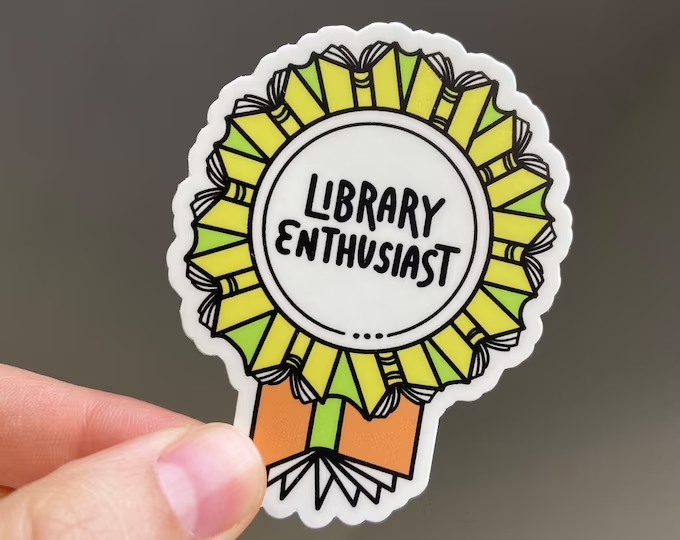🍿 Watched Ladybug & Cat Noir: The Movie.
A reimagining of the TV show. I loved how well it used the Palais Garnier. Sweet story and you get all the emotional payoff fans of the show had to wait 5 seasons for in only 105 minutes.
🍿 Watched Ladybug & Cat Noir: The Movie.
A reimagining of the TV show. I loved how well it used the Palais Garnier. Sweet story and you get all the emotional payoff fans of the show had to wait 5 seasons for in only 105 minutes.

Finished reading: Emily Wilde’s Encyclopaedia of Faeries by Heather Fawcett 📚
Lovely! A scholar of faerie lore travels to a frozen Scandinavian town to research for her book and along the way, her annoyingly wonderful colleague decides to join her. Brilliant use of both academia and faerie stuff in this one. Highly recommend.
🔖 Skimmed Publicize Your Principles.
This idea might be helpful for articulating Micro.blog’s principles. ATTN: @manton @jean
📚💬 “I was supposed to remain comfortably outside the stories with my pen and my notebook.” Heather Fawcett, Emily Wilde’s Encyclopedia of Faeries
📚 I am a very specific kind of nerd. In this book, set in 1909, a scholar studying faeries says she’s going to use naturalistic observation and ethnographic interviews as her research methods. I immediately thought this was anachronistic, because I knew Naturalistic Inquiry wasn’t published until 1985.
I was wrong. It’s not anachronistic, but it does show that Dr. Wilde is using cutting edge methods. While ethnography was first developed as a science in the 18th century, naturalistic observation wasn’t formalized until the turn of the 20th century.
So. Who cares? Well, me, because I’m a qual nerd. But I’m also a book nerd, so I feel like Wilde’s choice of methods reveals something about her as a character.
The way she writes about her research shows that she thinks of herself as a natural scientist, observing faerie behavior much as one would observe animal behavior. At the same time, the questions she’s asking and the way she treats her research “subjects” (a term that isn’t cool to use now but is absolutely what you’d use in 1909) shows that she can’t help but treat her research as social research, because surprise! in her world, faeries are people, not animals.
(What distinguishes people from animals? I’d say for Wilde’s purposes, speech and self-awareness.)
And now that I’ve written 200+ words about an imaginary scientist’s research methods, I should probably get back to bed.

📚💬 “He felt lighter somehow. Like he wasn’t paint blending into the wall. He felt real. He felt present. Almost like he could be seen.” T. J. Klune, The House in the Cerulean Sea
📚💬 “Home is where we get to be who we are.” T. J. Klune, The House in the Cerulean Sea
There’s a special irony in the fact that GalaxyCon Raleigh’s Cosplay, Cons, & Parenting panel takes place from 6:30 to 7:30 pm, exactly when parents need to be feeding their children and moving them toward bedtime.
o no I am become the dad in the LEGO movie
I recently listened to Katie Rose Guest Pryal on Camille Pagán’s podcast, You Should Write a Book, talking about how she found the throughline in her work and life. (Just listen to her articulate it on the podcast. I am afraid if I try to sum it up, I’ll get it wrong.)
At the time I listened to it, I was like, “I don’t know what mine is. Maybe I’ll never find it. Waaaah!”
But as I sat and let the idea marinate for a while, and I think I’ve figured it out.

I recently bought the above sticker and several other library-themed stickers, as well as a Read Free or Die t-shirt, from its creator.
One of the possibilities I was considering for after my postdoc was going back to being a school librarian. I don’t think that one’s going to pan out, but it did sort of launch me in the direction of identifying my throughline.
In May, several folks working on different grants funded by the Institute for Museum and Library Services, including myself, met and talked about what we’d learned from our work and what our capacity was for working on connected learning in libraries moving forward. All of the other academics indicated that they had to move on to other work, which might incorporate connected learning, but would not focus on it.
I found myself heartbroken.
This is what I want to work on. And nobody else, nobody with an institutional affiliation, was going to be able to work on it anymore?
Well.
Over the course of many weeks, I decided that I would still work on it. That I would find institutional partners who were willing to do a little bit of the work, so that I don’t have to have an institutional affiliation myself to get the work funded, but that I would be happy to do the bulk of the work so long as I could get a consultant’s fee for doing it. Enough to pay my student loans, mostly.
I’m in the process of refining this vision.
But the throughline, I’ve got that now.
Fine, it needs refinement, too, but here’s the basic idea:
My work builds libraries’ capacity to facilitate learning and connect with their communities. The two modes I use to do this are research and professional development.
This describes so much of what I’ve done for the past 8 years. And more than that, it describes what I want to do going forward. It’s expansive enough for me to take on a variety of projects, and narrow enough that I can continue to establish my areas of expertise and grow my network.
What’s your throughline?